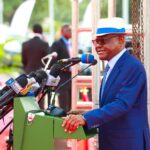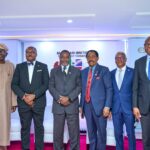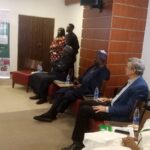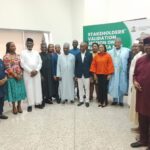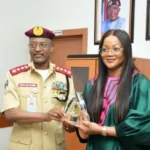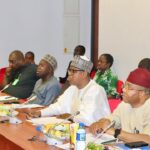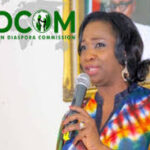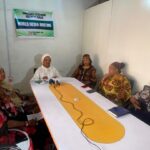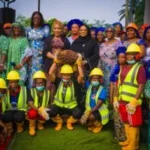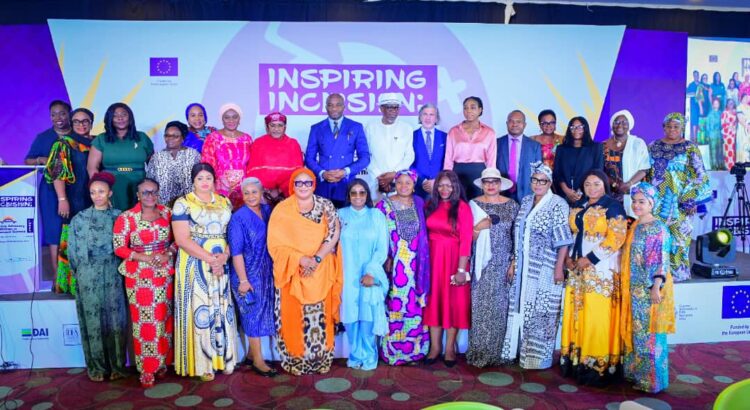By Perpetua Onuegbu
The European Union (EU) says the active participation of women in decision-making and politics is key to achieving equality, sustainable development, peace and democracy.
The EU Ambassador to Nigeria and ECOWAS, Ms Samuela Isopi, said this on Wednesday at a two-day roundtable on women inclusion in politics in Abuja.
Isopi, represented by the EU Deputy Head of Mission to Nigeria, Mr Zissimos Vergos, said that while women have the fundamental right to participate in politics, most of them still face lots of social, cultural and financial challenges.
She said that the ongoing constitution reform by the National Assembly presented an opportunity of promoting gender parity through the adoption of legal framework that discourages discrimination based on gender.
“Over the years, strategies to increase women’s participation in politics have been advanced through conventions, protocols, and international agreements for gender mainstreaming.
“However, they are yet to prove effective in achieving gender parity in the highest government rankings.
“Thus, women continue to be underrepresented in government, and face barriers that often make it difficult for them to access, exercise political power, and assume leadership positions.
“In Nigeria, the advocacy for women’s political participation has been long drawn, and despite dynamic interventions by women groups and other key stakeholders, their representation remain in steady decline,” she said.
The EU ambassador said that women’s representation in the 10th National Assembly was 7.4 per cent out of the total 469 combined seats in the Senate and House of Representatives.
She said that there was strong evidence that as more women were elected to office, there was increase in policymaking that emphasised quality of life, and reflected the priorities of families, women, and marginalised groups.
“Women tend to work across party lines, highly responsive to constituent concerns, help secure lasting peace, encourage citizen confidence in democracy through their own participation.
“They also prioritise health, education, and other key development indicators.
“Women’s political leadership may not be the only answer to sustainable development, but the foregoing underscores the important contributions women offer when given equal opportunities to men.
“We must therefore strive for a society where every woman does not just feel safe enough to survive but empowered enough to thrive,” she added.
In his remarks, Mr Benjamin Kalu, the Deputy Speaker, House of Representatives, said that women contributed immensely to nation-building, particularly as they were more thorough, unbiased, look beyond themselves, and were selfless.
“What the best performing African countries regarding female representation have in common is the adoption of electoral quotas for women; a system which is not present in the nations at the bottom of the ranking.
“Unfortunately, Nigeria happens to be one of them. The last position is Nigeria, with only four per cent of women holding seats in the House of Representatives, and 3.6 per cent in the Senate. That is sad.
“These figures paint a picture of stack disparity and highlight the urgent need for proactive and corrective measures to address the gender imbalance in political representation,” he said.
Similarly, Sen. Ireti Kingibe, the Chairperson, Senate Committee on Women Affairs, said that as of the 9th Assembly, the nation ranked 182 out of 186 countries in the world in terms of women in governance and politics.
“Nigeria faces significant gaps in women participation across all arms and levels of governance, reflecting a pressing need for increased gender inclusivity.
”Recent data reveals that women remain underrepresented in political spheres, with only 3.411 per cent of parliamentary seats held by women, four out of 109 Senators, and 14 out of 360 members of the House of Representatives.
“Part of the problem that I see is that first, the women are not usually on the ballots, let alone to get voted for. Therefore, one of the first places to start would be the political parties.
”Even when the women get elected, even within the Chambers and the House, there is a lot of discrimination and lack of inclusion,” Kingibe said.
She added: “It is not just about getting women elected but about changing the psyche of the average man to understand that women are important in governance and decision-making.”
Rep Fatima Talba, the Chairperson, House Committee on Women in Parliament, on her part said that there was an urgent need to address the imbalance that was prevalent in governance.
“There is a need to address women’s inclusion in politics and building bridges to empower women in politics.
“While there are more than 150 committees in the National Assembly, there are committees with no women in them.
“How can the interest of women be protected? Women make up about 65 per cent of the population, yet when it comes to decision-making, we are excluded,” she said.
Mr Clement Nwankwo, the Executive Director, Policy, and Legal Advocacy Centre (PLAC), decried the unfair social, cultural, and political hurdles women have to scale to be able to hold political offices.
“The 2023 general elections in Nigeria completely underscores the challenge we have in women representation, especially when you have a situation where out of 109 Senators, only 4 are women.
“Also, in the House of Representatives where you have 360 representatives and only 14 are women. This tells you the crisis of inclusion that Nigeria is faced with.
”Women continue to face severe challenges, even contesting elections in the primaries. After scaling past the primaries, they then have to face the bigger conversations around contesting in the election itself.
“This is an issue that goes to the root of our democracy and the structure of governance in the country,” he said.(NAN)(www.nannews.ng)
===============
Edited by Deborah Coker/Ali Baba-Inuwa

